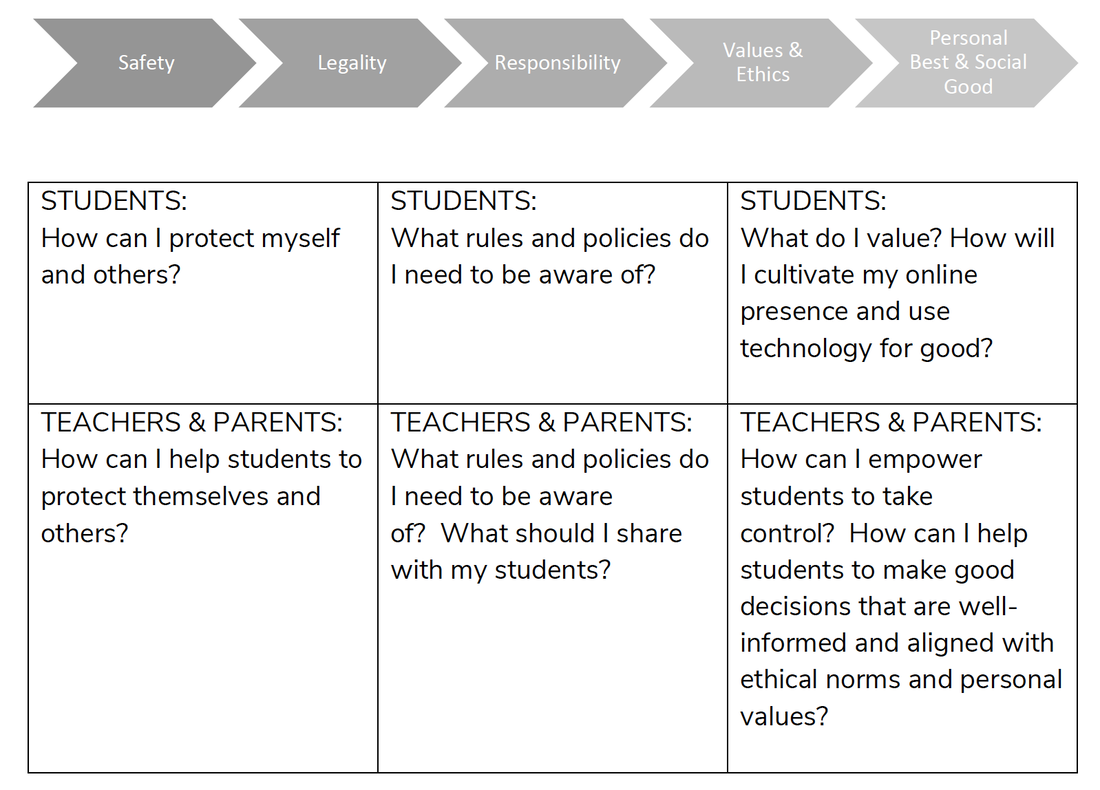Digital Citizenship
The term digital citizenship comes from the idea that computer users are inhabitants, or “citizens” of the digital society, and as such, they have a responsibility to the community when using technology. Or positioned differently, they have the opportunity to cultivate the digital space that they want it to be. Citizenship in the digital age also refers to one's personal use of technology, digital values, and fair and equitable digital-age practices.
Digital Citizenship encompasses safe, legal, responsible, and ethical technology use, as well as leveraging technology to achieve one’s highest potential and serve others.
Digital Citizenship encompasses safe, legal, responsible, and ethical technology use, as well as leveraging technology to achieve one’s highest potential and serve others.
Safety
- Engage in safe online relationships
- Protect one’s own and others’ privacy and identity online; be mindful of online data collection practices
- Recognize and avoid fraudulent or misleading online content (i.e., "misinformation" and "disinformation")
Legality - Revere intellectual property; give credit, cite sources, respect copyright
- Respect boundaries to protected data
Responsibility, Values, and Ethics - Be mindful of the viral nature and permanence of online content
- Verify the accuracy of information before using or sharing online
- Cultivate an authentic persona online and while using all digital communication tools; practice kindness, empathy, and good judgement in online interactions
- Recognize various online dynamics (e.g., shaming culture, homophily, social posturing) and intentionally determine engagement aligned to one’s personal values
- Practice discernment - access content that is helpful, healthy, and useful; avoid content that is not
Personal Best - Recognize technology’s role in physical, social, and emotional well-being; engage in healthy device use
- Cultivate human connection in online and IRL (“in real life”) relationships; be mindful of technology’s role in advancing and impeding relationships
- Use digital content and tools to satisfy intellectual curiosities, elevate one’s own voice, and empower personal growth
Social Good - Leverage technology to foster the advancement of one’s own global perspective
- Think critically about technology innovations and their impact on the world and individuals
- Leverage technology to improve conditions or address problems in local or global communities
- Be aware of the impact of technology on issues of equity; engage in and advocate for fair and equitable technology practices




